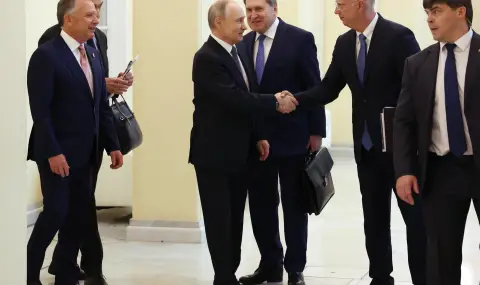Although the US-Ukraine agreement on mineral extraction is another sign of Kiev's willingness to compromise to end the war, Russia continues to show no desire for concessions. This is stated in a new report by the Institute for the Study of War (ISW), cited by Focus.
The document emphasizes that Ukraine's participation in this agreement demonstrates its aspiration for a long-term and sustainable peaceful settlement of the conflict. At the same time, Moscow rejects proposals from Ukraine, the US and the EU to monitor a possible ceasefire, deploy peacekeeping forces and resume negotiations.
ISW recalls that the US special envoy to Ukraine, Keith Kellogg, recently confirmed the commitment of the Ukrainian authorities to the peace process. During a meeting in London on April 23, Ukrainian representatives expressed readiness for negotiations and agreed to 22 specific conditions, including a comprehensive and lasting ceasefire - something that US President Donald Trump has long advocated.
“Now it is up to Vladimir Putin to take steps towards a peaceful solution“, Kellogg told Fox News on April 29. According to him, the US has already presented Moscow with a roadmap for ending the conflict, but the Russian side has not shown any intention to engage in it.
At the same time, Russian Foreign Minister Sergei Lavrov told the Brazilian newspaper O Globo that “the ball is not in Russia's court“, since, in his opinion, Ukraine has not shown any readiness for negotiations. However, ISW assesses such statements as an attempt by the Kremlin to gain time on the battlefield while shifting the blame for the lack of progress to Kiev.
Russia also categorically rejects proposals to deploy Western peacekeeping forces in Ukraine. On April 30, during a meeting of BRICS foreign ministers in Brazil, Russian Security Council Secretary Sergei Shoigu stated that Moscow would view Western contingents as “legitimate military targets”. He described such a deployment as unacceptable and hinted that the West intended to send “pseudo-peacekeepers” in Ukraine.
Other Russian officials have also made it clear that Moscow would not even accept the participation of the Organization for Security and Cooperation in Europe (OSCE) as a neutral mechanism to monitor a possible ceasefire.
The ISW report highlights that the Kremlin is using vague ceasefire terms to shift blame to Ukraine at any escalation. Moscow has consistently rejected all Western proposals to introduce monitoring and control mechanisms in the conflict zone.
On May 1, the Russian Foreign Ministry said that Russia would take "all necessary measures" to prevent the restoration of Ukraine's internationally recognized 1991 borders. President Vladimir Putin and other senior Russian officials have continued to press for territorial concessions from Kiev without offering any concessions of their own, signaling Moscow's intransigence in the conflict.
